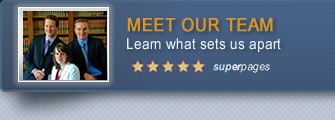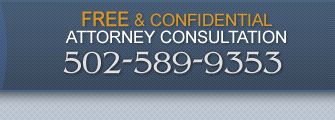CHAPTER 7 BANKRUPTCY LAWYERS
Both individuals and businesses may find themselves with more debts than they can pay. In such cases, filing for bankruptcy may provide a solution to what seems like an insurmountable problem. Bankruptcy provides two basic forms of relief: (1)debt liquidation and (2) rehabilitation, also known as reorganization. Most bankruptcies filed in the United States involve liquidation, which is governed by Chapter 7 of the Bankruptcy Code. However, due to changes in bankruptcy laws, Chapter 7 bankruptcy may not be an option for many individuals. Contact one of our bankruptcy attorneys to learn if bankruptcy under Chapter 7 can help you make a fresh start.
Chapter 7 bankruptcy affords relief from many types of debt, including credit card debt, bank loans, medical bills, most court judgments, and deficiencies on repossessed vehicles. However, certain debts cannot be discharged through a chapter 7 proceeding. The most common debts that cannot be discharged are:
- Most student loans
- Child support
- Spousal maintenance/alimony
- Restitution, fines and penalties from legal actions
- Court costs
- Recent federal, state and local taxes
- Any debt incurred as a result of driving while intoxicated
Chapter 7 Bankruptcy Proceedings
A Chapter 7 case begins when the debtor files a Petition with the bankruptcy court, triggering an automatic stay of all debt-collection activity. Filing a petition does not stop all actions by creditors, and the stay may only be in place for a finite period of time. While the automatic stay is in place, creditors may not initiate or continue lawsuits against the debtor, garnish the debtor’s wages or call the debtor demanding payments.
As part of the bankruptcy, the debtor must file a schedule of assets and liabilities; a schedule of current income and expenditures; a statement of financial affairs; and a schedule of any executory contracts and unexpired leases. Debtors with primarily consumer debt must also file a certificate of credit counseling and a copy of any debt repayment plan; evidence of any payments from employers made 60 days before filing; a statement of monthly net income and any anticipated increases in income or expenses after filing; and a record of any interest in state or federal qualified education or tuition accounts.
The bankruptcy court will appoint a trustee to oversee the Chapter 7 proceedings and to liquidate the debtor’s assets to apply toward the payment of debts. In some cases, a debtor’s assets are exempt or encumbered by valid liens, so there will be no assets to liquidate. Most consumer bankruptcies are “no asset” cases where no property is available for the creditors for liquidation.
The trustee will hold a meeting ofcreditors, normally within 40 days of the filing of the Petition. During this meeting, the trustee and creditors ask the debtor, who is under oath, questions about the nature of his or her debt. The debtor must attend this meeting.
A debtor may wish to keep certain property out of the bankruptcy proceedings. In order to do this, he or she must reaffirm the debt owed on the property. In a reaffirmation agreement, the debtor and creditor agree that the debtor will pay all or part of an otherwise dischargeable debt after the bankruptcy is finalized. The creditor promises that it will not repossess the property as long as the debtor continues to pay the debt. Reaffirmation agreements must be entered and filed with the court before the bankruptcy is discharged.
When all assets are liquidated and the proceeds are distributed, most remaining unpaid debts are discharged. This means that the debts no longer exist and the debtor has no further obligation to pay them. A court may deny a discharge if the debtor failed to keep or produce financial records; failed to satisfactorily explain any loss of assets; committed perjury; failed to follow an order of the court; fraudulently transferred or hid property; or failed to complete the required financial management course. Additionally, some debts are nondischargeable. These debts include, among others, student loans, damages resulting from the debtor’s willful or malicious acts, debts incurred by giving false financial information, domestic support obligations and some debts incurred just prior to filing for bankruptcy, are non-dischargeable.
If you are interested in finding out if chapter 7 bankruptcy relief is right for you, please call (502) 589-9353 or contact us online to learn about how we can help you. Our bankruptcy and debt relief lawyers proudly represent clients throughout Jefferson and surrounding counties. We are dedicated to providing cost-effective results for our clients. Your initial consultation is FREE.











